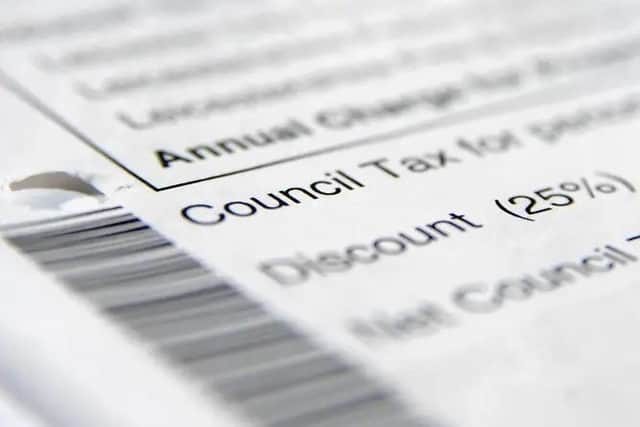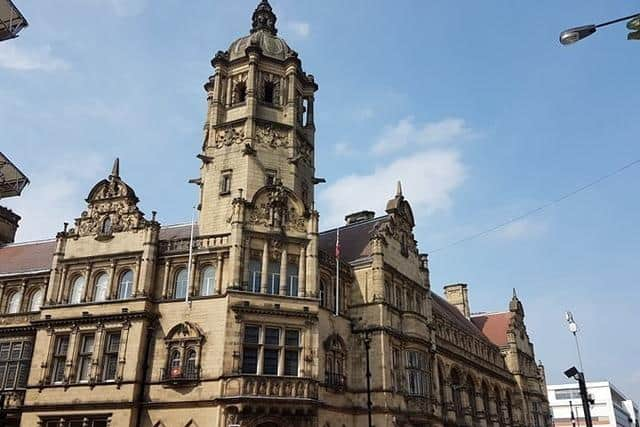Wakefield Council budget: Residents on low incomes to get £30 council tax discount as plan to bridge £24m funding gap set to be approved
and live on Freeview channel 276
Wakefield Council announced the commitment to help vulnerable households as it agrees tough budget proposals for the next financial year.
The move will see around 19,500 low-income homes and 4,000 pensioners will get £30 automatically discounted from their bill.
Advertisement
Hide AdAdvertisement
Hide AdA further £80,000 has been set aside by the local authority to help other economically vulnerable households.


This will be available through the council’s local welfare provision and will be awarded on a case by case basis.
Michelle Collins, the council’s cabinet member for resources, said: “We have made a commitment to help residents who are struggling with living costs, and this is another example of that promise.
“We have focused on helping the most economically vulnerable people who need the most support.”
Advertisement
Hide AdAdvertisement
Hide AdWakefield Council’s cabinet is also expected to offer help to businesses.


A new supporting small business relief scheme (SSB) would ensure no small business faces an increase in their bill of more than £600 per year, due to the change in their rateable value at the 2023 revaluation.
The current retail, hospitality and leisure (RHL) rate relief would also go up from 50 per cent to 75 per cent, up to a cap of £110,000.
Cabinet members look set to agree the 2023/24 budget proposals after they were put to a public consultation.
Advertisement
Hide AdAdvertisement
Hide AdThe proposals include a maximum council tax hike, cuts to some services and the scrapping of jobs as it struggles to balance the books.
The council will also use £10m of its reserves to help ease pressure on services and residents.
The local authority said the consultation had shown “strong support” for the proposals, with the majority of people recognising the need to increase council tax and add an adult social care precept.
But residents also raised concerns about the impact higher bills would have on their own budgets.
Advertisement
Hide AdAdvertisement
Hide AdCouncil leader Denise Jeffery said: “I absolutely share these concerns. We know many of you are already struggling to get by and our services affect your lives.
“This government has no understanding of the brutal impact they are having on people and communities by their continued underfunding of local councils.
“Their funding model is woefully inadequate and fundamentally damaging, forcing councils across the country to ask residents to pick up the burden.
“I urge the Government to put a stop to this, face up to what they’ve done and sort it out now.”
Advertisement
Hide AdAdvertisement
Hide AdCabinet will also be asked to agree to spending £12.5m to ease “significant pressures” to its capital and investment strategy.
In 2022/23, the council started a five-year programme that is seeing £436m of capital investment.
Capital investment means buying, building or improving physical assets, such as buildings, land and vehicles.
Rampant inflation means that the costs for many of these projects have significantly increased.
Advertisement
Hide AdAdvertisement
Hide AdCoun Jeffery said: ”We are uniquely placed to use capital investment to help drive regeneration and economic growth across the district.
“The ability of the council to make major investment in the district, to positively support residents and businesses is crucial.
“Inflation is affecting these types of projects all over the country so we must make preparations to deal with this.”
The capital programme covers the entire district and includes investment in leisure facilities, children’s homes, parks, roads, flood defences, cars, bin wagons, castles, schools and IT systems.
Advertisement
Hide AdAdvertisement
Hide AdIt also includes major regeneration programmes running in Wakefield city centre and Castleford.
The cabinet meeting takes place on February 14.
If accepted, the plans will then move to a full council meeting for formal agreement in March.